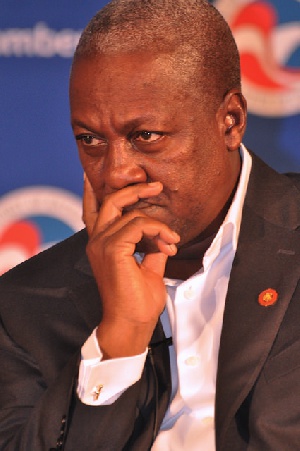Anti-corruption campaigners in Ghana have vowed to monitor with keen interest the implementation of commitments and statements made by the government at the global anti-corruption summit convened by UK Prime Minister David Cameron, last week.
For the group, Ghana has not done too well in its fight against corruption, and therefore the need for concerted efforts to make meaningful progress. The UK Summit, in the view of the group, gives the President of the Republic an opportunity to move away from the rhetoric of fighting corruption into real action.
“We are interested in monitoring. We will be tracking the commitments that the President made at the Summit, and we will hold him to these commitments,” they said in separate interviews with the Public Agenda.
The campaigners include the Ghana Integrity Initiative(GII), Ghana Anti- Corruption Coalition(GACC), the Integrated Social Development Centre (ISODEC), African Centre for Energy Policy(ACEP), and the Natural Resources Governance Institute(NRGI).
President Mahama was among selected international leaders from across the world who gathered in London last week to initiate a global response to growing corruption tendencies, some of which proceeds go to finance terrorism activities and threaten global security.
The summit sought to agree on a package of actions to tackle corruption across board, as well as deal with issues including corporate secrecy, government transparency, the enforcement of international anti-corruption laws, and the strengthening of international institutions.
The Corporate Affairs Manager of GII, Mr Michael Boadi told Public Agenda in an interview that the stakes in the fight against corruption are high, as the country is left with just about six months to election and that his outfit will be interested in examining the President's record in combating corruption, especially measuring the rhetoric with his actions and inactions.
“In the run-up to the 2016 elections, we will be interested in examining the President's record, and part of the record we want to examine is his commitment to fighting corruption. We will measure rhetoric with the practice so it wouldn't be like the president is just talking; but that when he speaks, he takes action.”
According to him, the anti -graft organisation will be interested in monitoring and reporting on how these new anti- corruption commitments are transmitted into the country's legal framework and enforced.
He mentioned that the GII will particularly be monitoring the commitment on Beneficial Ownership Disclosure as well as the Right to Information Bill, which has been the topic of discussions among civil society for more than a decade.
On her part, the Acting Executive Secretary of the Ghana Anti-Corruption Coalition (GACC), Ms Beauty Emefa Nartey, pointed out the importance of not allowing the renewed global commitment to fighting corruption pass without interrogating its implications for Ghana. “We will need to distill for ourselves what these commitments mean to us, and how we work to achieve them,” she explained.
Ms Nartey stated “We will look at matching the commitments with the President's action against corruption. Generally we expect that the president will be more proactive in his fight against corruption. He should exhibit or demonstrate his resolve in a way that convinces Ghanaians that he is ready to walk his talk.”
For starters, she wants the President to take the implementation of the National Anti Corruption Action Plan (NACAP) seriously, and to subject it to periodic national reviews and progress assessment to make sure that the country stays the course of implementation.
She emphasised the need for Parliament to pass the RTI bill before the close of the year so that citizens can use it to demand accountability from duty bearers.
“The citizens' right to know is the only way to remove the incentive for rent-seeking and corruption on the part of public office holders, and so delaying the passage of the Bill into law amounts to providing cover for such nefarious activities with the attendant huge cost to the country's development” she posited rather strongly.
Meanwhile President John Dramani Mahama has described the fight against corruption in Ghana as “an uphill task” and gone ahead to claim that significant progress has been made to win that fight.
The president was speaking in an interview with the BBC on the sidelines of the just ended Anti-Corruption Summit in London. He said because of the exposure of acts of corruption, some people are accepting the perception of corruption as a reality.
The president said “one of the things about countries like Ghana is that creating the environment where people are able to speak freely about corruption, heightens the perception of corruption. So it might be that because of the environment in which corruption is discussed, people have the perception that there is an increase in the perception of corruption.”
President John Mahama, however, reiterated his call that persons who have evidence of corruption or suspect corrupt acts should report to the appropriate authorities to investigate.
Last Friday's edition of the Public Agenda, however, suggested that most of these appropriate investigative authorities that the President refers to, are incapacitated by the fact that their heads are all in acting positions. The Paper mentioned, in particular, the Economic and Organised Crime Organisation (EOCO), the Commission on Human Rights and Administrative Justice (CHRAJ), the Registrar General's Department, and other equally important institutions such as the National Commission on Civic Education (NCCE), and the Petroleum Commission.
The Public Agenda story has been corroborated by former President of Ghana John Jerry Rawlings during a courtesy call on him by the visiting Prime Minister of Trinidad and Tobago, Dr. Keith Rowley.
“The integrity of our political leaders is what we need most on this continent. Some of our institutions that should be exacting integrity out of us have gone weak with time,” President Rawlings stated when Dr. Rowley called on him at his office in Accra on Wednesday.
General News of Monday, 16 May 2016
Source: Public Agenda













